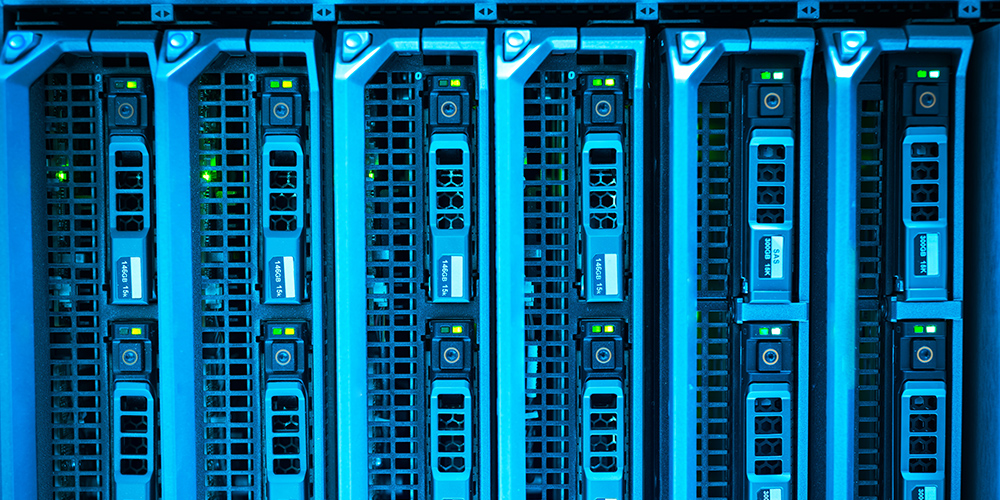In today’s digital age, small businesses are increasingly becoming targets for cyber attacks. With limited resources and expertise to devote to cybersecurity, these businesses are often ill-equipped to defend against the ever-evolving threats posed by cybercriminals. In this blog post, we’ll explore the importance of managed services in cybersecurity along with the benefits of investing in a managed services partner for cybersecurity, and different types of cyber attacks to protect against.
Why Small Businesses Are Vulnerable:
Small businesses are attractive targets for cyber attacks for several reasons:
Limited Resources: Small businesses typically have limited budgets and personnel to dedicate to cybersecurity efforts. Unlike large corporations with dedicated IT departments and robust security measures, small businesses often lack the resources to implement comprehensive cybersecurity strategies.
Lack of Awareness: Many small business owners underestimate the importance of cybersecurity or mistakenly believe that they are not at risk of being targeted by cybercriminals. This lack of awareness can leave businesses vulnerable to attacks, as they may fail to implement basic security measures or recognize potential threats.
Easy Targets: Cybercriminals often view small businesses as easy targets due to their perceived vulnerabilities. Small businesses may lack the sophisticated security defenses of larger organizations, making them more susceptible to attacks such as phishing scams, ransomware, and data breaches. The importance of Managed Services in Cybersecurity is not a priority for many small businesses.
Valuable Data: Despite their size, small businesses often store valuable data such as customer information, financial records, and intellectual property. This makes them attractive targets for cybercriminals seeking to steal sensitive information for financial gain or to use for malicious purposes.
Investing in a Managed Services Partner:
Given the growing threat of cyber attacks, small businesses can benefit significantly from partnering with a managed services provider (MSP) like LocalIT for cybersecurity. Here are some reasons why:
Expertise and Experience: Managed services partners specialize in cybersecurity and have the expertise and experience to protect small businesses from a wide range of threats. They stay abreast of the latest security trends and technologies, allowing them to implement proactive measures to prevent attacks and mitigate risks.
Cost-Effective Solutions: Partnering with an LocalIT can be more cost-effective for small businesses than hiring in-house cybersecurity staff or investing in expensive security software and hardware. Managed services providers offer scalable solutions tailored to the specific needs and budget constraints of small businesses.
24/7 Monitoring and Support: Managed services partners provide round-the-clock monitoring and support to detect and respond to cyber threats in real-time. This proactive approach helps to minimize the impact of attacks and reduce downtime, ensuring that small businesses can continue to operate smoothly.
Compliance and Regulations: Many small businesses are subject to regulatory requirements related to data security and privacy. Managed services partners can help ensure compliance with these regulations by implementing appropriate security measures and protocols.
Types of Cyber Attacks to Protect Against:
Small businesses face a variety of cyber threats, each requiring a different approach to mitigation and prevention. Here are some common types of cyber attacks to be aware of:
Phishing Scams: Phishing scams involve cybercriminals posing as legitimate entities to trick individuals into revealing sensitive information such as passwords, credit card numbers, or personal details. Phishing emails, fake websites, and social engineering tactics are commonly used in these attacks.
Ransomware: Ransomware is a type of malware that encrypts files or systems, rendering them inaccessible until a ransom is paid. Small businesses are often targeted by ransomware attacks, which can result in significant financial losses and operational disruptions.
Data Breaches: Data breaches occur when unauthorized individuals gain access to sensitive information stored by a business, such as customer data or proprietary information. These breaches can result in reputational damage, legal liabilities, and financial penalties for small businesses.
Insider Threats: Insider threats involve employees, contractors, or other individuals with access to a company’s systems or data intentionally or unintentionally causing harm. Insider threats can take various forms, including data theft, sabotage, or negligent behavior.
Distributed Denial of Service (DDoS) Attacks: DDoS attacks involve overwhelming a target’s servers or network infrastructure with a flood of traffic, causing them to become unavailable to legitimate users. Small businesses are increasingly targeted by DDoS attacks, which can disrupt operations and lead to financial losses.
Small businesses are vulnerable to a wide range of cyber attacks due to their limited resources, lack of awareness, and valuable data. Investing in a managed services partner for cybersecurity can help mitigate these risks by providing expertise, cost-effective solutions, 24/7 monitoring and support, and compliance assistance.
With threats evolving every day, it’s crucial to stay ahead of potential risks. Local IT Service is here to help. Our team of experts specializes in comprehensive cybersecurity solutions tailored for small businesses. By choosing Local IT Service for your cybersecurity check-up and ongoing security needs, you can ensure that your business is equipped with the latest defenses against cyber threats. Don’t leave the security of your business to chance. Contact Local IT Service today to safeguard your digital assets and maintain the trust of your customers.



